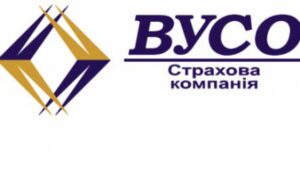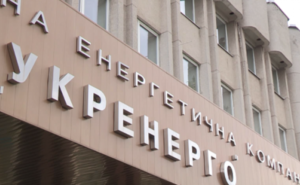
The Cabinet of Ministers has assigned the duties of the chairman of the State Service for Medicines and Drug Control to the deputy chairman of the service, Vladimir Korolenko.
The government adopted the relevant order on December 24 in connection with the removal of the head of the State Service, Roman Isaenko, from his duties.
Korolenko will perform the duties of the head of the service during Isaenko’s removal.
As reported, on December 24, the Cabinet of Ministers initiated disciplinary proceedings against Dmitry Isaenko. The Commission on Senior Civil Service Issues must carry out the relevant disciplinary proceedings by January 27, 2026.
In November, NABU conducted searches at the State Service’s main office, in particular, in Isaenko’s office. In February 2025, he became a subject of the Bihus.Info investigation. Journalists found out that people from Isaenko’s circle and the SBU’s curator of this area had created a private laboratory called Dobrobut-Likilab, which almost immediately after registration began receiving orders to test medicines from the State Service of Ukraine on Medicines and Drugs Control.
Isaenko has headed the State Service of Ukraine on Medicines and Drugs Control since 2018, first as acting chairman, and in early 2019, he won the competition for the position of head of the agency.

On November 28, 2025 the Supervisory Board of the Insurance Company “VUSO” has decided on early termination of powers of a member of the Board – Deputy Chairman of the Board for operational activities Marina Plastomak.
As reported in the information of the company, posted in the system of NCSSM, the decision was made on the basis of her application and comes into effect from December 31, 2025. Dismissal is carried out by transferring her to the position of Director of the Department of work with projects of PrivatBank from January 1, 2026.
It is also specified that she was in this position since July 1, 2019. Marina Plastomak owns a stake in IC “VUSO” in the amount of 4.928226%.
According to the information, Olga Levchenko was appointed by the Supervisory Board of the company on December 23, 2025 to the position of a member of the Management Board, Deputy Chairman of the Management Board of IC “VUSO”, by transferring her from the position of Director of Health Insurance. The appointment was made on the basis of the decision of the Committee for Supervision and Regulation of Non-banking Financial Services Markets of the National Bank of Ukraine dated December 19, 2025.
During the last five years Levchenko held the positions of Director on medical insurance of IC “VUSO”, Deputy Chairman of the Board on underwriting and personal insurance of IC ‘VUSO’, First Deputy Chairman of the Board of IC “Alfa Insurance”.
IC “VUSO” was founded in 2001. It is a member of ITSBU and UFS, a participant of Direct Loss Settlement Agreement and a member of Nuclear Insurance Pool.

PJSC National Energy Company Ukrenergo on December 24 announced a tender for compulsory insurance of civil liability of owners of land vehicles (MTPL). As reported in the system of electronic public procurement ProZorro, the expected cost of the purchase of services – 6.551 million UAH. The last day for submitting applications for participation is January 5.
NEC Ukrenergo is a state-owned company, the operator of the electricity transmission system (TSO) of Ukraine. Ukrenergo is responsible for dispatch control of the unified energy system of Ukraine, operation and development of backbone power grids, balancing of the system and ensuring stability of electricity transmission, as well as for interstate overflows and access to grids at the transmission level.

The National Bank of Ukraine has issued a new commemorative coin dedicated to the traditional sacred holiday – Christmas, the National Bank of Ukraine announced on Facebook.
“Our new commemorative coin, ”Spirit of Christmas,” embodies the deep traditions of this joyous family holiday, which have kept Ukrainians together for generations. It features a stylized image of a golden straw didukh, a traditional attribute of Ukrainian Christmas, and is filled with the warmth and comfort of a pre-Christmas meal of a Ukrainian family. And although many families are separated by distance today, we are still together in our hearts at the festive table,” the NBU press service quoted the head of the central bank, Andriy Pyshnyy.
The coin with a face value of 10 hryvnias is made of 925 silver, with a pure precious metal weight of 31.1 grams. The decorative elements include double-sided local gilding with a diamond insert (1.5 mm).
The obverse features a stylized image of a straw didukh in the center of the composition. Its base is decorated with a straw angel, symbolizing protection and good news. The background of the composition is divided into two planes resembling a window illuminated by the light of stars on Christmas Eve. One of the stars symbolizes the Star of Bethlehem (with a diamond shining in its center).
The reverse side depicts a traditional pre-Christmas meal of a Ukrainian family, where the images of the father, mother, and children are visually identified with celestial bodies: the halos around their heads symbolize the Sun (wife), the Moon (husband), and the stars (their children). In front of the family is a table with 12 dishes: kutia, varenyky, pampukhy, fish, and other traditional treats, as well as garlic heads—a talisman against evil spirits.
Artists Volodymyr Taran, Oleksandr Kharuk, Serhii Kharuk, and sculptors Anatolii Demianenko and Volodymyr Atamanchuk worked on the creation of the coin.
The mintage is up to 15,000 pieces.
The commemorative coin will be available in the NBU’s online numismatic store and through distributor banks starting in January 2026.

Corum Druzhkivka Machine Building Plant (Corum DrMZ), part of the Corum Group (DTEK Energy), plans to ship a skip with a lifting capacity of 23 tons for the DTEK Energo mine in late 2025 or early 2026, the plant announced on Facebook.
“This is not the largest skip in the history of Corum DrMZ, but it belongs to a large type series. Its height is about 16 m. The new equipment is part of the mine’s lifting complex upgrade program,” the statement said.
The skip is designed to transport coal and rock mass along the vertical shaft of the mine.
The plant also reports that by the end of this year, it plans to complete the manufacture and delivery of metal structures for energy infrastructure facilities.
“These are complex dimensional elements that must operate within a precisely defined geometry and integrate accurately into existing structures. The length of individual items reaches almost 45 m, and the total tonnage of metal exceeds 110 tons,” the company notes.
According to Korum DrMZ, it has manufactured similar metal structures before: in the spring of this year, the volume of similar work amounted to more than 97 tons.
“The current order is a one-off, but the plant is well acquainted with this type of work and has the technical expertise,” the statement said.
Korum DrMZ, which relocated from Druzhkivka (Donetsk region) to Dnipro in 2022, in January-September this year, according to YouControl, incurred losses of almost UAH 90 million, compared to a net profit of UAH 4.6 million for the same period last year and slightly lower net sales revenue of UAH 844.6 million.
In January-October, the plant manufactured 336 units of mining equipment, repaired 12 units of equipment, and produced over 821,000 parts.
Corum Group is a leading manufacturer of mining equipment in Ukraine. It is part of DTEK Energy, an operating company responsible for coal mining and coal-fired power generation within Rinat Akhmetov’s DTEK energy holding.

The crop division of the Alebor Group grain trading company has completed the 2025 production season, the company’s press service reported on Facebook.
According to the report, the company’s specialists grew and harvested wheat from 2,000 hectares with a yield of over 7 tons/hectare, corn from 1,100 hectares with a yield of 14.5 tons/hectare, rapeseed from 1,500 hectares with a yield of 3.6 tons per hectare, and sunflower from 1,800 hectares with a yield of 3.85 tons per hectare.
Alebor Group is a trading company founded in 2006 in the Cherkasy region. Its structure includes the Khristinivskoye Grain Receiving Enterprise (with a storage capacity of 74,000 tons of grain), the Voronovitske Grain Receiving Enterprise (104,000 tons of grain), Chesne Grain Receiving Enterprise (27,500 tons of grain), transport companies Boleko and Avtoera with a fleet of 210 heavy-duty grain trucks, and construction company Alebor Real Estate.
According to information on the company’s website, Alebor Group is one of the top 20 grain trading companies in Ukraine, exporting about 2 million tons of grain annually. The group has its own land bank of 6,500 hectares. The company’s founder is Oleksiy Kustov.
KMZ Industries is the largest manufacturer of elevator equipment in Ukraine and produces a full range of products, including silos, grain dryers, transport equipment, and separators, as well as providing automation and installation services.
According to the company, it has built more than 5,000 facilities. KMZ Industries silos with a total volume of more than 12.5 million cubic meters are in operation.